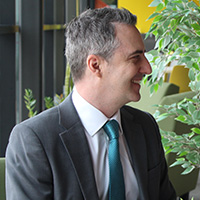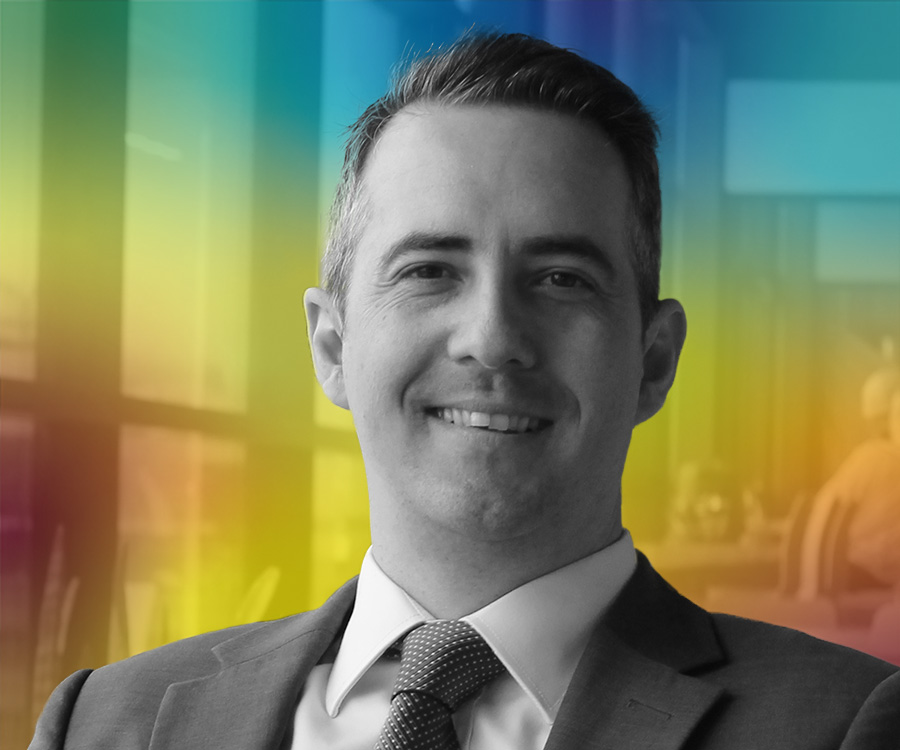Don’t let time become the enemy of launching your legacy
Share This Article!
Is not knowing enough about entrepreneurship or waiting to perfect your idea holding you back from launching your business?
You are waiting too long!
Mike Simpson is North Forge’s first and Head Entrepreneur-in-Residence (EIR). He works closely with many of North Forge’s founders on their entrepreneurship journey and has some sage advice for those who have been dreaming about owning their own business,
“Just do it! Whether it be starting a business or getting your product into the marketplace, don’t wait!
“North Forge will help you determine which stage of our new 4-stage Founders Program is appropriate for you as founders come into the program at different stages in the business lifecycle.
Go ahead and put some time into making an application as straightforward as possible,” Mike advises. “Be accurate and forthcoming about your innovative business idea because that information is going to allow North Forge to move the intake process forward faster.
Don’t let ‘perfect’ become the enemy of your good idea. Instead, think in terms of the startup stage you are in and that it will get you to the next stage you need to be at.”
Mike guides the founders through each stage by using an adjustable process to assess the needs and goals of each founder. “I figure out what kinds of things they are good at, what kind of things they know, and where they need help. Then, I understand their skills and the gaps in their knowledge.
My job as an EIR is to help founders find resources and solutions to the things they need based on what they know and what they need to know. Then I introduce that information in portion sizes they can absorb and learn from.”

Mike Simpson, Head Entrepreneur-in-Residence with North Forge
The Business Model Canvas (BMC) is one of the visual tools used in the Founders Program to help describe, assess, create, deliver, and capture a business’ value to the customer, helping you gain the traction you need in the marketplace. Mike introduces this concept in small steps to ease the individual into thinking like an entrepreneur.
“I feel a business plan is too much for most early-stage technology companies as it’s too wordy and full of assumptions. Rather than wordsmithing a business case, it’s better to take action, create a plan on how you’re going to go out and get customers to like what you’re doing and quickly adjust based on feedback.”
Along with not waiting to dive into entrepreneurship, Mike also encourages founders to embrace the concept of launching early. “Some founders have a natural tendency to want to launch what they’re doing. Other founders want to develop this quasi-perfect product and then launch it, but this delays rapidly learning from customers. The real work begins AFTER launching, not before.
It is vital to identify the simplest thing they could launch as their minimum viable product (MVP). Using that as a mechanism to get early feedback from customers is more effective than spending an abundance of time doing a massive product launch.” Mike shared that with this method, “there is not as much to undo or rework when you launch with a simpler MVP.”
MVPs can be prototypes (preliminary models of something from which other forms are developed or copied) like tech or tangible manufactured products. MVPs can also be creative; for example, the commission-free trading app Robinhood launched a viral email campaign as their MVP and gained one million followers before a product existed.
“There are many creative ways you can launch something to allow you to get your product out sooner,” Mike shared. “This important time-saving step gets the business into the marketplace sooner and generates early traction helping you see whether or not you have something that solves the problem you’re trying to fix.”
Customer traction is a crucial area where Mike helps founders focus. “Not knowing who your customers are can derail entrepreneurs quickly. Understanding your business’ value proposition is key to getting customer traction.
It’s easy to get sidetracked with a lot of stuff that’s not fundamental to learning about and gaining customers. You can waste a lot of time getting lost researching different topics or going down rabbit holes which may not help you deliver value to a customer.
I help the founders focus on the question, ‘do you have traction?’ And if not, then what are the steps to get traction.” Additionally, Mike guides founders on gathering suitable types of customer research to gain the deep insights needed to understand the customer’s pain points.

“It’s an amazing feeling to be a part of the founder’s journey,” Mike revealed. “It’s one of the reasons why I became an EIR with North Forge. I love small business, and I find it especially exciting working with many early-stage companies,” said Mike. “I’m working with companies from various diverse industries who are building everything from SaaS (software as a service) to physical products. It’s rewarding helping the founders take a shorter path or helping them avoid pitfalls that they’ll run into along the way. I need to be quite creative to help make them successful.”
North Forge brings founders into the Founders Program who think differently, are industry disruptors, or risk-takers which aligns with who Mike enjoys working with. “I believe that entrepreneurs are some of the most exciting people you can meet. They’re typically cut from bold cloth. They think a little bit differently than a lot of other people.
Startup Mom Joelle Foster (she has helped over 400 founders start their businesses and calls those startups her kids) has created a close-knit entrepreneurship community with the Founders Program through encouragement and support. “What I like about this environment is that you develop longer-term relationships with people. I’ve worked with some founders for almost a year now, so I’ve become part of their journey,” Mike said. “I understand what’s going on in their lives and what might be challenging them, especially for solo entrepreneurs, as it can be a lonely journey. I encourage them to tell me what’s keeping them up at night or what is troubling them. I want to be real with each other to support them, work through the challenges together, and make them feel comfortable doing that. My role is to not just talk about their successes but to help them navigate when they flounder.”
An unexpected takeaway Mike had was learning from the founders alongside the founders. “I think I underestimated how much I’d be learning from the process. Our founders each have their superpower, a different approach to challenges, and different tactics. It surprised me how much I grew from the experience.”
Are you inspired to launch your business earlier than you initially thought?
Do you have an idea that would solve a problem but need help with how to start a business?
We would love to hear from you! Tell us about your idea (don’t worry if you don’t have the answers to all the questions yet), and our Programming Team will contact you to set up a meeting to chat about it.
If you’d like to see the advanced manufacturing equipment we have available at the FabLab™ to help you build your idea, we invite you to register at our Meetup page for a tour.



